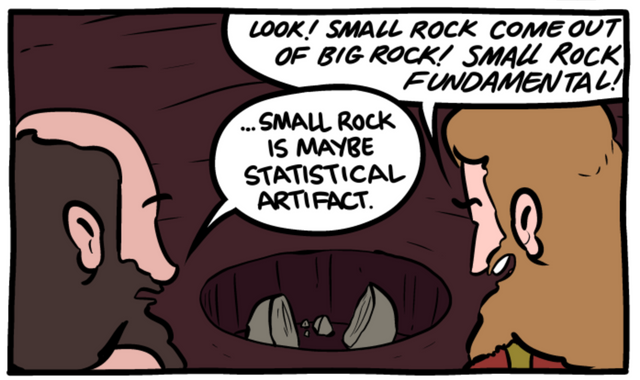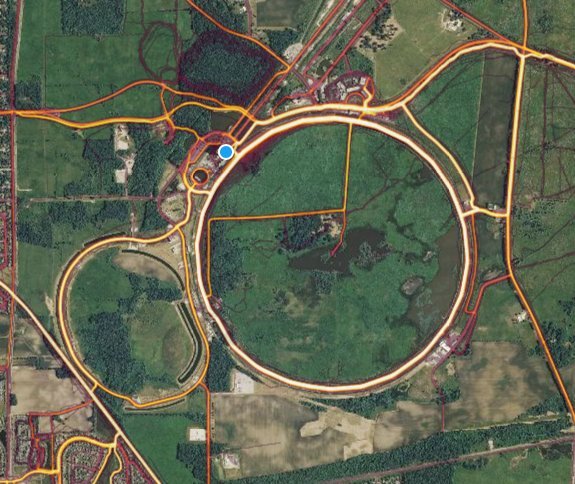What does an experimental particle physicist do: the simple answer
The shortest answer of what experimental particle physicists do is
"we break particles to check what is inside and then build cameras to actually look at the broken particles. Then we interpret what is inside"
this is of course the most simplistic way to look at particle physics, like a child who breaks up a toy to see how it works.
And I get to use fancy equipment to do this, like the great Compact Muon Solenoid detector. Here with another pic of me with my detector:

The CMS experiment in 2010, and I found a helmet to match my sweater! Photo by J. van der Heuvel
However the metaphor is not as far as you would think, we just use fancier machines to look inside smaller and smaller spaces. This has for example already been explained in this excellent Saturday Morning Breakfast Cereal comic.

One frame from the outstanding SMBC comic on particle collliders, source: SMBC
Since the middle of the 20th century universities, countries, and organisations like the european consortium CERN, have regularly built dedicated machines that collide particles as often and as efficiently as was possible at the time. The Large Hadron Collider is the latest of these machines. Before it started, the Tevatron collider at Fermilab (near Chicago in the USA) was the most powerful collider, I spent a substantial fraction of my career working at that machine.
Unlike the LHC, which is underground, the Tevatron collider was installed at ground level, providing plenty of exercise for the physicists as well as you can see from this fun running heatmap by one of my colleagues at Fermilab:

Source: [twitter feed of Chris Quigg, Fermilab theoretical physicist] (https://twitter.com/chrisquigg/status/958052549323567104) strada
So, accelerators do not necessarily need to be underground. The main reason the Large Hadron Collider is underground is because there already was a tunnel there. And the tunnel was already there because it is easier to clear 27 kilometers underground than at ground level.
In future posts I intend to explain more on how we collide and accelerate particles, how we look at the collisions and of course what we learn from these collisions. All of these bring huge technical challenges that are interesting by itself, so deserve at least one separate blog post, just for the introduction.
Stay tuned!
Great Post! I believe science professions and contributions should always be explained to the general public, this way people could stop seeing it as complex/hard/boring stuff and actually start appreciating these areas and even maybe discovering something that could be an interest! I now know a tiny bit more about what you guys do, thank you very much! :D
This is something that some of us are really paying attention to today. Unfortunately, others also do not care at all...
Totally agreed! And you're welcome, I hope my posts can help with this appreciation, it is also why I am starting with the simplest things :)
Thanks for posting about this, interesting to find someone who actually works at one on here! I had a chance to visit CERN a few years back and it was a very fascinating experience. I'll have to dig the photos up that I took while there.
Thanks for posting about this, i like your post
this is a great post everybody is proud to see it
This is excellent. It's something that has interested me for years, but when I look it up, it burns my brain with explanations I don't understand. I'm very excited to learn more as you post. That's a speed I can grasp things at. :)
hey..i.like your.all.post..your.post so good thanks for.sharing...
congratulations, you just arrived on the stemmite and you're playing at most. Your work is extraordinary, projected to the future of humanity!!!
go on like this...
Wow..this is great, seeing a particle physicist not just from anywhere but from CERN on here. I have always been obsessed with CERN since after reading Dan Brown's thriller, Angels and Demons. Could you please talk about the particle collider that created the first anti matter in one of your posts? Such a post would actually make my month not a day or week.
Its pleasure even commenting on your post. I love sciences too but its too bad am currently in law school, but one doesn't necessarily have to be a scientist to do science does he?
It seems I am asking much but its not everyday one gets to comment on a CERN physicist' post. So what do you think about Aliens and extraterrestrial life? Do you think they exist?
Am obsessed about them and just blogged about it too from the little research i made.
Thank you @freyablekman really hoping you'd answer. Thank you once again.
Hi, we've been looking at antimatter for a very long time, it was experimentally discovered by Carl D. Anderson in 1932 when he saw anti-electrons :) The wikipedia post on antimatter is actually very good so take a look there.
I like the Dan Brown books as well, but it is important to remember that they're fiction.... (!)
Extraterrestrial life probably exists in some form, considering how many planets there are. But then, lichen, amoebas etc are also life, life does not have to mean little green men in flying saucers. Now why we have not seen it (or they us?) is a completely different question, and more of a philosophy than a physics question. Google Fermi paradox if you want to read that philosophical discussion :)
Being A SteemStem Member
Welcome to Steemit @freyablekman. I see you have called yourself 'ilikequarks' on your blogpage :o) Really enjoyed your 2 posts so far, a great appetiser for what is to come hopefully.. I am looking forward to the more technical posts where you get into the physics. I have followed you, as I don't want to miss any of this. Thanks for sharing with us. You're a credit to science
Thanks! I really will start from the basics as @lemouth already wrote quite a lot of posts on the intricacies of the theory (and applied theory, which we call phenomenology in physics) side. I will get there eventually as well, but the focus for now is baby steps so people understand things as much as possible :) Hope you don't mind
Thanks for the detailed reply, absolutely, that sounds like a good idea, and will give everyone a chance to learn as you go along. All the best with it.
Also, repetition and a different standpoint are both good. So don't hesitate to rewrite about stuff I already wrote :)